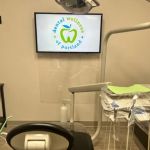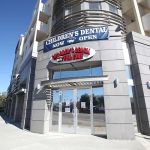- 1-Understanding-Chipped-Teeth-and-the-Need-for-Repair
- 2-Immediate-Steps-to-Take-After-Chipping-a-Tooth
- 3-Temporary-At-Home-Fixes-for-Chipped-Teeth
- 4-Limitations-of-Fixing-a-Chipped-Tooth-Without-Dental-Visit
- 5-When-to-See-a-Dentist-for-Chipped-Teeth
- 6-Preventing-Future-Tooth-Chips-and-Maintaining-Oral-Health
1. Understanding Chipped Teeth and the Need for Repair
Chipping a tooth is a common dental injury that can happen from accidents, biting hard foods, or even wear over time. While minor chips might seem only cosmetic, they can expose the sensitive inner layers of the tooth, leading to pain, sensitivity, or infection if left untreated. Understanding the nature of your chipped tooth is essential to deciding how to fix it—especially if you're considering how to manage it without an immediate dental visit.
Knowing the severity of the chip—whether it affects just the enamel or deeper layers—helps guide your response and the urgency of professional care.
2. Immediate Steps to Take After Chipping a Tooth
Right after chipping a tooth, quick and careful action can minimize discomfort and further damage. Rinse your mouth gently with warm water to clean the area, and apply a cold compress externally to reduce swelling. Avoid chewing on the affected side, and if you experience pain, over-the-counter pain relievers can help manage symptoms.
If you find the chipped piece, save it and keep it moist—sometimes dentists can reattach it. Avoid using adhesives or household glues, as these can cause more harm than good.
3. Temporary At-Home Fixes for Chipped Teeth
For those wondering how to fix a chipped tooth without dental visit immediately, several temporary home remedies can provide relief and protect the tooth until professional care is possible. Dental wax or sugar-free gum can be molded to cover sharp edges, preventing irritation to your tongue and cheeks.
Using dental repair kits available at pharmacies is another option. These kits often include filling materials to temporarily cover the chip. However, these are short-term solutions and should not replace a professional dental evaluation.
4. Limitations of Fixing a Chipped Tooth Without Dental Visit
While temporary fixes help, they cannot restore the tooth’s full function or appearance. Home treatments don’t address underlying damage like cracks or nerve exposure, which can worsen without proper care. Attempting extensive repairs without a dentist risks infection, increased sensitivity, and further tooth loss.
Professional treatments such as bonding, veneers, or crowns are necessary for lasting restoration and health.
5. When to See a Dentist for Chipped Teeth
It’s important to schedule a dental visit as soon as possible after chipping a tooth, especially if you experience persistent pain, swelling, bleeding, or difficulty chewing. A dentist can assess the damage thoroughly, use X-rays to check for fractures, and recommend appropriate treatment to prevent complications.
Ignoring professional care can lead to worsening problems that require more invasive and costly interventions later.
6. Preventing Future Tooth Chips and Maintaining Oral Health
To reduce the risk of future chips, avoid chewing on hard objects like ice or pens, wear mouthguards during sports, and maintain good oral hygiene to keep teeth strong. Regular dental checkups can identify weaknesses and address issues early.
For guidance on dental care products and preventive tips, visit Dentistry Toothtruth for trusted advice tailored to maintaining healthy, resilient teeth.







 Arise Dental - Your Local Peoria Dentist4.0 (205 review)
Arise Dental - Your Local Peoria Dentist4.0 (205 review) Dental Wellness of Portland4.0 (28 review)
Dental Wellness of Portland4.0 (28 review) JP Orthodontics: Patel Jay R DDS3.0 (4 review)
JP Orthodontics: Patel Jay R DDS3.0 (4 review) Koch Orthodontics - Loganville5.0 (863 review)
Koch Orthodontics - Loganville5.0 (863 review) Dental Group of Covina3.0 (865 review)
Dental Group of Covina3.0 (865 review) Children's Dental FunZone - Pediatric Dentist & Orthodontist - West LA4.0 (1410 review)
Children's Dental FunZone - Pediatric Dentist & Orthodontist - West LA4.0 (1410 review) The Importance of Oral Health Education During Pregnancy for a Healthy Pregnancy
The Importance of Oral Health Education During Pregnancy for a Healthy Pregnancy Best Tips for Brushing Your Teeth Properly for Healthy Gums: Essential Techniques for Oral Health
Best Tips for Brushing Your Teeth Properly for Healthy Gums: Essential Techniques for Oral Health Why Skipping Dental Checkups Can Lead to Bigger Oral Health Problems
Why Skipping Dental Checkups Can Lead to Bigger Oral Health Problems Advantages of Porcelain Dental Restorations
Advantages of Porcelain Dental Restorations How Can Diabetes Cause Tooth and Gum Problems? Preventing and Managing Oral Health Issues
How Can Diabetes Cause Tooth and Gum Problems? Preventing and Managing Oral Health Issues Healthy Habits for Promoting Good Oral Health and Hygiene: Tips for a Healthy Smile
Healthy Habits for Promoting Good Oral Health and Hygiene: Tips for a Healthy Smile